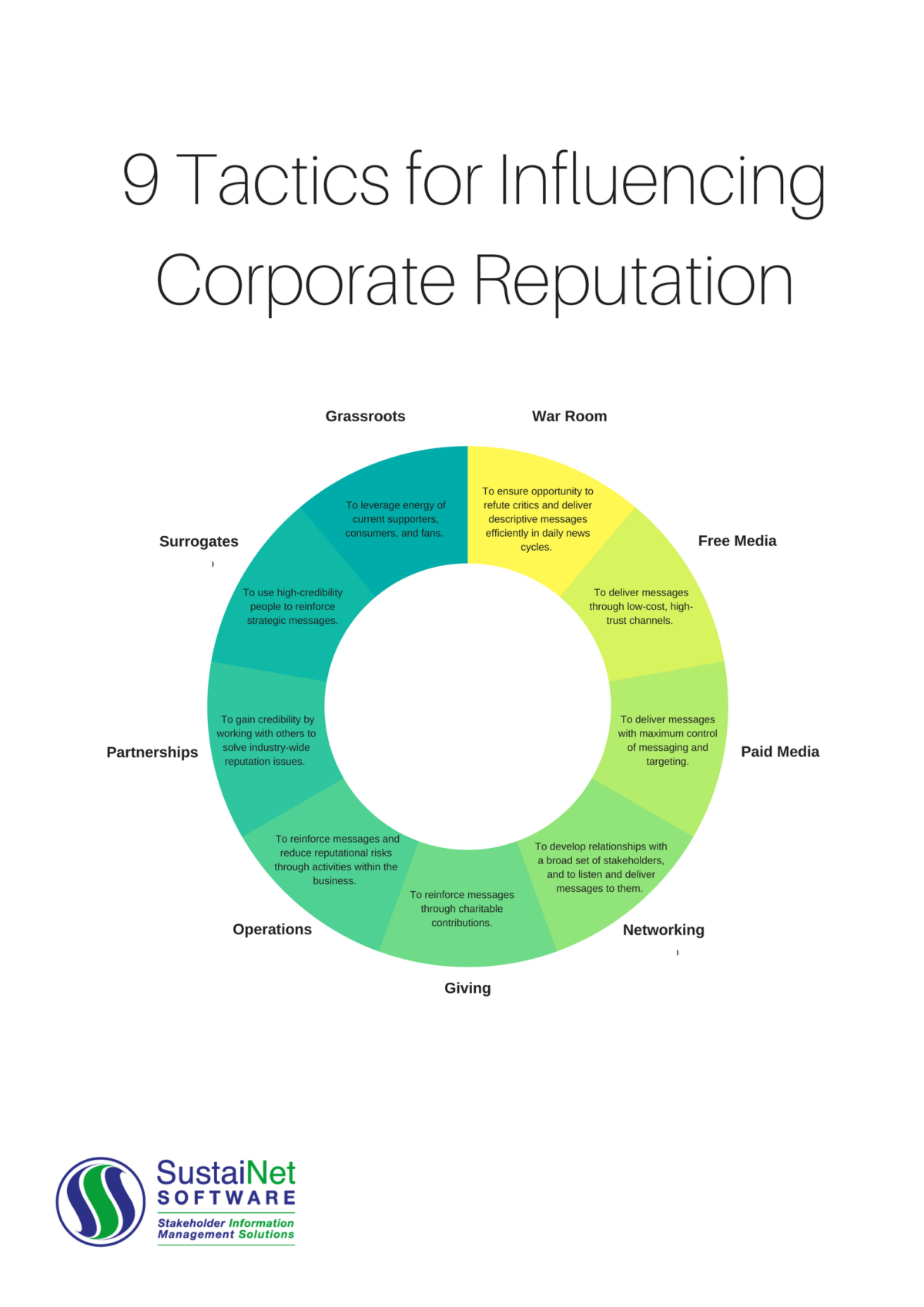
Corporate reputation management initiatives need to be executed from a variety of angles – and employing a variety of communications measures will help companies deal with specific situations they will be measured against and will need in order to demonstrate transparency to stakeholders. Engaging the following nine communication channels increases awareness of a company’s activities, prevents miscommunication, and effectively maintains the very important social contract with company stakeholders.

- The War Room’s purpose is to refute critics and deliver descriptive messages efficiently in daily news cycles, leaving minimal room for critics to question any silences.
- Free Media uses low-cost, high-trust channels to share company stories and connect with influencers.
- Paid Media ensures maximum control over messages, and includes TV, sponsored social media posts and print ads.
- Networking develops relationships with a broad set of stakeholders, connecting with influential supporters and creating a better understanding of detractors.
- Giving reinforces messages through charitable contributions. Corporate Social Responsibility projects play a strategic role in helping businesses to be seen as having an important impact on their communities.
- Operations reduces risks to reputations through activities within the business. CSR commitments made to stakeholders should be tracked, monitored and fulfilled.
- Partnerships develop credibility by working with others to solve industry-wide reputation issues.
- Surrogates use high-credibility thought leaders to reinforce strategic messages.
- Grassroots activities leverage the energy of current supporters, consumers, and fans. Social media interactions create highly visible support for the company.
Source: Rebuilding Corporate Reputations, McKinsey Quarterly, June 2009
How can SustaiNet help with corporate reputation management? We simplify the stakeholder management process, enabling organizations to rapidly access accurate and audit-able stakeholder information important for:
- Regulatory compliance
- Earning a “social license to operate” and demonstrating project due diligence
- Sustainability reporting and customer service programs and initiatives
- Community involvement, transparency, and accountability in decision-making
Contact us today to get started on the road to effective stakeholder management.

Leave a Reply